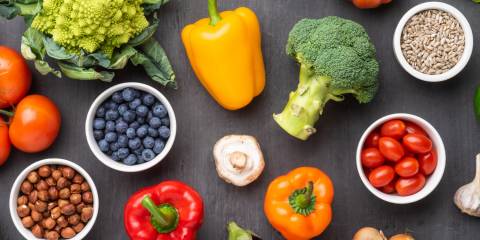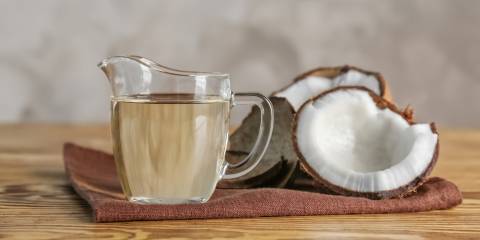Here are the quick facts on digestion.
Got heartburn, upset stomach, constipation, gas? There are many natural options for alleviating digestive issues and for supporting healthy digestion.
Please see the bottom of this page to see the scientific research.
Probiotics
Probiotics are friendly bacteria that live in the gastrointestinal tract.
Benefits include:
- Suppressing harmful bacteria that could lead to illness
- Producing vitamin K and some B vitamins
- Helping move nutrients to the bloodstream
- Supporting a strong immune system
- Supporting mental health
- Helping treat or prevent:
- diarrhea
- irritable bowel syndrome
- ulcerative colitis
- Crohn’s disease
- C. diff infection
For bolstering immunity, look for probiotics that include Lactobacillus acidophilus and/or Bifidobacteria
Fiber
Fiber, found in plant foods, aids absorption of nutrients and adds bulk to the stool, helping waste move more quickly.
Benefits include:
- Promoting healthy cholesterol levels
- Regulating blood glucose levels
- Helping your intestines move faster
- Cleaning bacteria and other buildup from your intestines, reducing the risk of colon cancer
- Keeping you regular and reducing constipation
The seven varieties of fiber are:
- brans
- gums
- mucilages
- psyllium seed
- hemicellulose
- lignan fiber
- pectin
A nutritional supplement called modified citrus pectin, or MCP, is a form of pectin that has been molecularly altered to improve its bioavailability.
To best supplement food sources of fiber, alternate among the different types.
Tea
Peppermint Tea
With antiviral, antimicrobial, antioxidant, antitumor, and antiallergenic properties, this tea is used for flatulence, nausea, diarrhea, and irritable bowel. It can improve the flow of bile, which helps digests fats, so that food can pass through the stomach more quickly. Avoid this tea if you have gastroesophageal reflux disease (GERD).
Ginger Tea
Ginger has anti-inflammatory, antioxidant, antitumor and antiulcer effects; use it for upset stomach, nausea, vomiting, and motion sickness.
Chamomile Tea
Chamomile is an antioxidant, antimicrobial, anti-inflammatory, and antidepressant, among others. Use chamomile tea for stomach cramps, indigestion, gas, and diarrhea.


